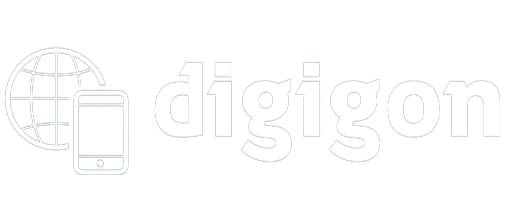
Introduction
In today’s fast-paced and ever-evolving job market, where the influence of automation and artificial intelligence is on the rise, securing your dream job requires more than just technical prowess. While technical skills are undoubtedly essential, they alone won’t guarantee career success. To stand out in a crowded job landscape and surpass automated bots, you need to complement your technical knowledge with a set of crucial soft skills.
Employers are increasingly recognizing the significance of soft skills in their workforce. These skills encompass a wide range of personal attributes and abilities that enable individuals to interact effectively with others, solve problems, and adapt to various situations. In this comprehensive guide, we’ll delve into the essential soft skills that can propel your career to new heights and help you outshine automated competition.
Whether you’re a seasoned professional looking to advance your career or a recent graduate entering the job market, understanding and developing these soft skills can make all the difference. We’ll explore the eight core soft skills highly prized by Indian organizations, as outlined in the World Economic Forum’s Future of Jobs 2023 report. These skills, with their respective percentages, are as follows:
Cognitive Skills – 24 Percent
Self-Efficacy – 24 Percent
Technology Skills – 18 Percent
Management Skills – 12 Percent
Working with Others – 12 Percent
Engagement Skills – 6 Percent
Ethics Integrity – 5 Percent
Each of these skills plays a unique role in shaping a well-rounded and competitive professional. We’ll provide insights into what these skills entail and offer practical guidance on how to develop and apply them effectively in your career. Whether you’re aiming for a leadership role, seeking to excel in a technical field, or simply looking to enhance your employability, these soft skills will be your key to success.
Cognitive Skills - 24 Percent
Cognitive skills, including reasoning, problem solving, and planning, are among the most critical soft skills in the modern job landscape. These skills enable individuals to process information effectively, make informed decisions, and devise strategic solutions. In a world where technology handles routine tasks, cognitive skills set you apart by enhancing your ability to tackle complex problems.
To develop your cognitive skills, engage in activities that challenge your thinking, such as puzzles, strategic games, or brainstorming sessions. Additionally, continuous learning and seeking out new experiences can stimulate your cognitive abilities.
Self-Efficacy - 24 Percent
Belief in your own abilities and capacity to execute tasks or strategies is a cornerstone of self-efficacy. This soft skill is crucial because it drives motivation, resilience, and a proactive approach to challenges. Individuals with high self-efficacy are more likely to set ambitious goals and persist in their efforts.
Boosting self-efficacy involves setting achievable goals, breaking them down into manageable steps, and celebrating your successes along the way. Embrace failures as opportunities for growth, and seek constructive feedback to refine your skills.
Technology Skills - 18 Percent
In an increasingly digital world, technology skills are in high demand. This soft skill encompasses the ability to use technology effectively to perform a job or devise innovative strategies. Whether you’re in a technical role or not, proficiency with digital tools and platforms is essential.
Stay updated with the latest tech trends, participate in online courses, and seek certification in relevant technologies. Embrace technology as a tool that enhances your productivity and problem-solving capabilities.
Management Skills - 12 Percent
Management skills are invaluable for those aspiring to lead teams and oversee projects. This soft skill involves the ability to manage and lead a team, devise and execute strategies, and effectively communicate and motivate team members.
Develop your management skills by seeking leadership roles in group projects, volunteering for leadership training programs, and studying successful leaders. Effective delegation, conflict resolution, and clear communication are key aspects of this skill.
Working with Others - 12 Percent
Collaboration is a cornerstone of success in today’s workplace. The ability to work effectively with colleagues and teams from diverse backgrounds is a sought-after soft skill. Individuals who excel in this skill can foster a positive work environment and drive collective achievements.
Practice active listening, empathy, and adaptability when working with others. Seek opportunities to collaborate on projects and engage in team-building activities. Building strong professional relationships is a key component of this skill.
Engagement Skills - 6 Percent
Engagement skills involve actively listening to employees, customers, and colleagues to build connections and understand their perspectives. This soft skill fosters effective communication, enhances teamwork, and leads to improved problem-solving.
To develop engagement skills, practice active listening and ask open-ended questions to encourage meaningful discussions. Constructive feedback and empathy are also essential components of this skill.
Ethics Integrity - 5 Percent
A strong code of conduct, dependability, and resourcefulness characterizes ethics integrity. This soft skill is essential for maintaining trust, both within your organization and with clients or customers. It involves making ethical decisions, honoring commitments, and demonstrating dependability.
Cultivate ethics integrity by consistently acting in an honest and principled manner. Seek out ethical dilemmas and make choices that reflect your commitment to integrity. Building a reputation for trustworthiness is crucial for long-term success.
Conclusion
In a job market increasingly influenced by automation, these soft skills are your secret weapon. They not only enhance your employability but also enable you to thrive in various professional roles. By investing in the development of these soft skills, you’ll not only beat the bots but also become an indispensable asset in your organization.
So, as you embark on your career journey or seek to advance in your current role, remember that it’s not just what you know but also how well you can work with others, adapt to change, and make ethical decisions that will set you apart. Invest in your soft skills, and watch your career prospects soar.
Frequently Asked Questions (FAQs)
What are soft skills?
Soft skills refer to a set of personal attributes and abilities that enable individuals to interact effectively with others, solve problems, and adapt to various situations. They include skills such as communication, leadership, and adaptability.
Why are soft skills important in the job market?
Soft skills are crucial in the job market because they enable individuals to stand out in a crowded landscape, adapt to changing work environments, and collaborate effectively with others. They complement technical skills and enhance employability.
How can I develop my soft skills?
Developing soft skills involves self-awareness, practice, and continuous learning. You can develop these skills by seeking out opportunities for personal growth, participating in training programs, and actively applying them in your professional life.
Are soft skills relevant in technical roles?
Yes, soft skills are relevant in technical roles. They enhance your ability to collaborate with colleagues, communicate your ideas effectively, and adapt to changing project requirements. Soft skills are essential for career growth in any field.
Can soft skills be learned and improved?
Yes

Add a Comment